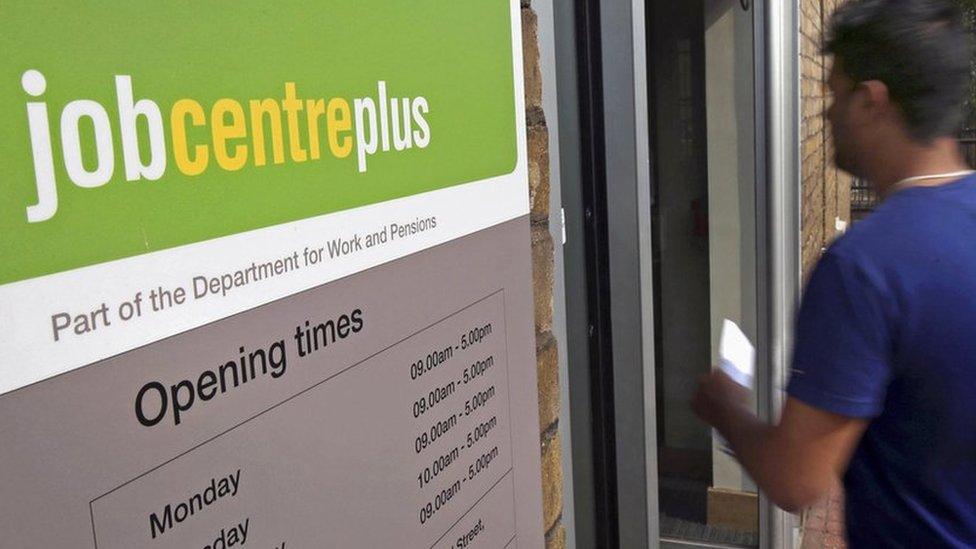Scottish unemployment rate hits record low at 3.6%
- Published

Unemployment in Scotland has fallen below the 100,000 mark for the first time, new figures have revealed.
The Office for National Statistics (ONS) said the number of people seeking work fell to 99,000 between September and November last year.
This makes the jobless rate 3.6%, a record low, with more than three quarters of working age Scots now in a job.
The UK unemployment rate is 4.0%, its lowest point since 1975.
Scottish Business Minister Jamie Hepburn said: "Despite the huge and continued challenges of Brexit, the Scottish economy remains resilient and our jobs market is strengthening.
"Scotland's unemployment rate reached a record low again this month, down to 3.6%, lower than the UK rate of 4.0%.
Scottish Secretary David Mundell said: "It is great news that unemployment has fallen to a new record low. I do remain concerned that in some measures there are less people active in the labour market."
ONS data revealed 75.3% of the Scottish working age population, those aged between 16 and 64, had some form of work between September and November last year.
Dr Stuart McIntyre, of the Fraser of Allander Institute, said: "This latest data for Scotland shows that despite weak economic growth and heightened economic uncertainty, headline measure of labour market continue to perform well - with the unemployment rate hitting 3.6%, its lowest rate since records began in 1992.
"That being said, productivity growth is sluggish, and the outlook for the economy through the next few months remains highly uncertain."
Rising wages
Across the UK, the number of people in work in the UK has reached a record high of 32.5 million.
Average earnings, excluding bonuses, increased by 3.3% in the year to November, as wage rises continued to outpace inflation.
Excluding bonuses, they went up by 3.4% - the biggest rise for a decade.
ONS head of labour market David Freeman said: "The number of people working grew again, with the share of the population in work now the highest on record.
"Meanwhile, the share of the workforce looking for work and unable to find it remains at its lowest for over 40 years, helped by a record number of job vacancies.
"Wage growth continues to outpace inflation, which fell back slightly in the latest month."
Andrew Wishart, UK economist at Capital Economics, said the figures were "reassuring, showing no sign of any hit to firms' hiring ambitions due to Brexit".
However, Samuel Tombs, chief UK economist at Pantheon Macroeconomics, warned that the pace of wage increases may begin to ease.
"We doubt that wage growth will be sustained over the next six months at November's strong rate," he said. "Pay settlements likely will weaken this year, as the previous year's inflation rate usually is the starting point for negotiations.